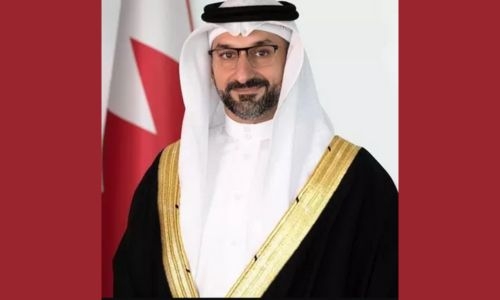Looking beyond oil
TDT | Manama
The Daily Tribune – www.newsofbahrain.com
Countries that remain dependent on oil and gas would fall behind others as industries turn green and investors increasingly look for climate-friendly opportunities, warn Bahrain Minister of Industry and Commerce Abdulla Adel Fakhro.
The Middle East, he said, is taking bold steps towards economic diversification, recognising the importance of moving away from hydrocarbons and investing in new industries.
Powering up this shift will be increasing digitisation and the widespread adoption of emerging technologies, stressed the minister.
“There will undoubtedly be significant challenges ahead but if Middle Eastern countries can adapt to these megatrends and follow through on their ambitious plans for diversification, they will succeed in creating a more prosperous and resilient region, the minister said in an article penned for the World Economic Forum.
The move away from hydrocarbons, Minister Fakhro said, will help the region’s economies become more resilient in the face of climate change and a changing world.
In this scenario, the minister highlighted artificial intelligence, a creative workforce, real estate, travel and tourism, and e-commerce as the five mega trends that would play significant roles over the next decades in the Middle East.
Artificial intelligence
Fakhro said that Bahrain is harnessing the capabilities of AI, which is poised to become one of the most disruptive global forces of this decade.
According to him, the Middle East region would generate economic gains of up to $320 billion by 2030 through the adoption of AI.
Citing developments in Dubai and Saudi Arabia, the ministry said Bahrain is currently employing AI to count its palm trees and quantify agricultural production more efficiently.
With these developments, AI could contribute almost $46 billion, or 8.2% of gross domestic product (GDP), to the economies of Bahrain, Kuwait, Oman and Qatar by the end of this decade.
A creative, youthful workforce
Bahrain, the minister pointed out, has also invested heavily in education and training programmes to equip young people with the skills they need, not just to thrive in a knowledge-based economy, but to lead one.
"This is important as the Middle East has one of the youngest populations, with children and young people accounting for around half of the population," he said.
He pointed out that private and public sector organisations across the Middle East are finding innovative ways to invest in their young people and their future.
Real estate
The minister also highlighted the importance of property investment as an enabler of economic diversification. Bahrain’s GDP, he stressed, of which 5% comes from real estate and is on the rise.
Travel and tourism
In going forward, the minister further stressed that tourism would play an increasingly important role in the region’s economy as more countries seek to attract visitors from around the world.
"Despite being a small island, Bahrain has plans to welcome 14.1 million tourists a year by 2026 and create 4,700 jobs in the travel-related industries."
The World Travel & Tourism Council forecasts that travel and tourism’s contribution to the Middle East’s GDP will grow at an average rate of 7.7% annually to be worth almost $540 billion from 2022 to 2032.
E-commerce explosion
The ministry also pointed out that growth in digitalisation and a rise in e-commerce adoption will transform the way businesses operate in the region.
Governments are investing accordingly in digital infrastructure – Saudi Arabia is building 14 fully automated smart warehouses in Jeddah as part of a public-private sector partnership. Meanwhile, the UAE is doubling down on its multi-billion e-commerce market with a bold ambition to become a cashless society
Related Posts

